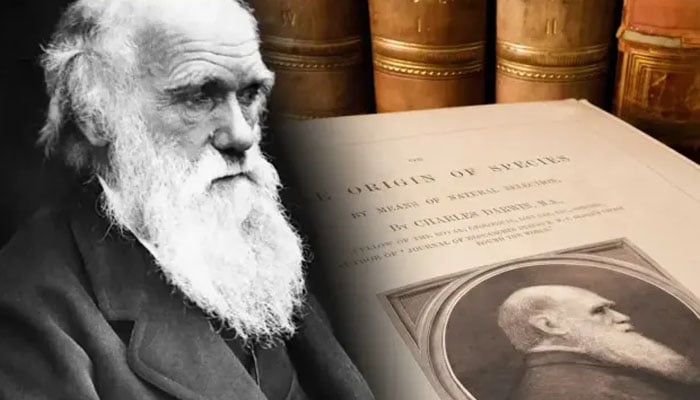Charles Darwin's lost library finally discovered after 142 years
Charles Darwin, prolific writer, is most known for his book "On the Origin of Species"
Charles Darwin's extensive library has been virtually rebuilt for the first time since his death in 1882, revealing the vast array of books, pamphlets, and periodicals that the well-known scientist read and cited.
Darwin, a prolific writer, is most known for his book "On the Origin of Species," published in 1859 which popularised the idea of evolution as a basic scientific theory, according to BBC.
The research team behind the Darwin Online project has published a 300-page catalogue that gathers the original 7,400 titles and 13,000 volumes Charles Darwin originally held in honour of the 215th anniversary of his birthdate on February 12.
To encourage the public to read what Darwin read, the catalogue contains 9,300 links to free online versions of the library's contents.
“This unprecedentedly detailed view of Darwin’s complete library allows one to appreciate more than ever that he was not an isolated figure working alone but an expert of his time building on the sophisticated science and studies and other knowledge of thousands of people. Indeed, the size and range of works in the library makes manifest the extraordinary extent of Darwin’s research into the work of others,” said project leader Dr John van Wyhe, historian of science at the National University of Singapore.
Throughout his life, Charles Darwin kept detailed records of his library, which include a handwritten 426-page "Catalogue of the Library of Charles Darwin" that was assembled in 1875.
Darwin's library was initially preserved and recorded following his death. However, a large portion of its contents were lost or moved over time.
The University of Cambridge and Down House, Darwin's family home in Downe, England, which is still open to the public, housed two major collections totaling 1,480 books. Only 15% of the original library was expected to be included in the collections.
Van Wyhe and his colleagues started working on a virtual reconstruction of Darwin's library in 2007 in response to messages he received from scholars and members of the public inquiring about certain titles.
“Scholars have been researching Darwin’s life and works for over a century,” Van Wyhe said. “One of the most important elements in understanding Darwin’s theories is his sources — the publications by others that he used in his research.”
Throughout the arduous 18-year effort, organisations like Christ's College Cambridge, the Cambridge University Library, the Down House Museum, and private collections were consulted in order to locate and preserve the library.
-
US House passes ‘SAVE America Act’: Key benefits, risks & voter impact explained
-
US House passes resolution to rescind Trump’s tariffs on Canada
-
British Soap Awards scrapped again as ITV confirms 2026 hiatus
-
Climate nearing dangerous tipping points, study shows
-
Jill Biden’s former husband charged with wife’s murder
-
Bad Bunny delivers sharp message to authorities in Super Bowl halftime show
-
Thai school shooting: Gunman opened fire at school in southern Thailand holding teachers, students hostage
-
Maxwell could get 'shot in the back of the head' if released: US congressman












